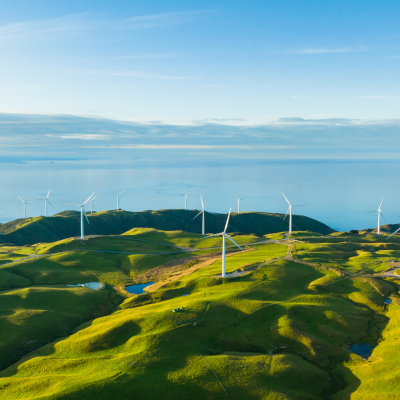Green hydrogen, which does not release carbon dioxide throughout its production process, is becoming more popular as a power-generating fuel around the world. Europe has gained the lead in the industry, due to the widespread use of renewable energy, but Asia is also beginning to move towards production.
Green hydrogen produced by renewable energy, when paired with emerging low-carbon technologies, can address sustainability concerns in sectors such as urban transportation, building and infrastructure, and penetration of variable renewable energy and power. Nonetheless, global investment in hydrogen remains low compared to the investment in renewable energy, owing mostly to its high cost, particularly green hydrogen. However, the cost of green hydrogen is forecast to fall dramatically between 2030 and 2050.
Asia and the Pacific are leading the way in hydrogen investment, accounting for more than 50% of global investment in 2021. Asia and the Pacific, including Australia, Japan, India, New Zealand and the Republic of Korea, are considering green hydrogen policies to speed decarbonization.
Governments throughout the world have pledged over USD 70 billion in funding for more than 200 projects, as well as over 30 road maps and policies. The global demand for hydrogen energy has been increasing steadily, and it is expected to reach 530 million tons per year by 2050.
According to Hydrogen Council, a consortium of over 150 multinational corporations and U.S. consulting firm McKinsey & Company, the combined hydrogen demand in China, India, Japan and South Korea will likely reach 285 million tons in 2050, accounting for 43% of global demand. China, the world’s largest consumer of hydrogen, wants to lead the way in green hydrogen production. Large-scale initiatives are being started, such as Sinopec’s construction of a 20,000-ton-per-year manufacturing factory.
In India, large projects are being planned one after the other, leveraging the country’s large land area, abundant sunlight and low-cost renewable energy sources. Japan will likely benefit from the increase in green hydrogen generation in Asia-Pacific. According to International Renewable Energy Agency, hydrogen produced in Japan currently costs roughly US$2.50 per kilogram, whereas it is estimated to cost US$0.70 per kilogram in Australia and India by 2050. Green hydrogen’s popularity in Japan is expected to grow as imports continue to be cheaper.

Hydrogen attracted almost $1.5 billion in investments in 2020, a 20% decrease from the previous year. The reduction was driven by fuel-cell-powered bus sales, which fell to around $400 million in 2020 from $865 million in 2019. Sales of passenger Fuel Cell Vehicles (FCVs) increased to $592 million in 2020 from $555 million in 2019. In 2020, investment in hydrogen-fuel vehicles was just one-twelfth of that in electric vehicles, highlighting the disparity between the two technologies.
Investment in hydrogen refueling stations increased to $272 million in 2020 from $268 million in 2019. Owing to increased global interest in green hydrogen production, electrolysis investments increased to $189 million in 2020 from $168 million in 2019. Hydrogen investment is likely to increase in the future as policy support grows.
According to market research estimates, the global green hydrogen market at US$1.14 billion in 2021, with Europe holding the largest regional market share. The market is estimated to develop at a CAGR of 46.14% over 2021-2026 to US$16.45 billion in 2026. Asia-Pacific will account for a 57% market share and growth by 2026. The growing demand for renewable energy resources is one of the primary factors driving the growth of the global green hydrogen market, and the high initial cost will likely be a major hurdle for the green hydrogen market during the forecast period.
Gunung Capital has extensive knowledge and experience owning and operating one of Indonesia’s largest privately owned vertically integrated steel firms. Gunung Capital assists the steel plant in meeting its carbon-reduction targets by adopting and implementing extensive emission-reduction strategies that transform climate action into long-term business possibilities for businesses, governments, and organizations worldwide.














